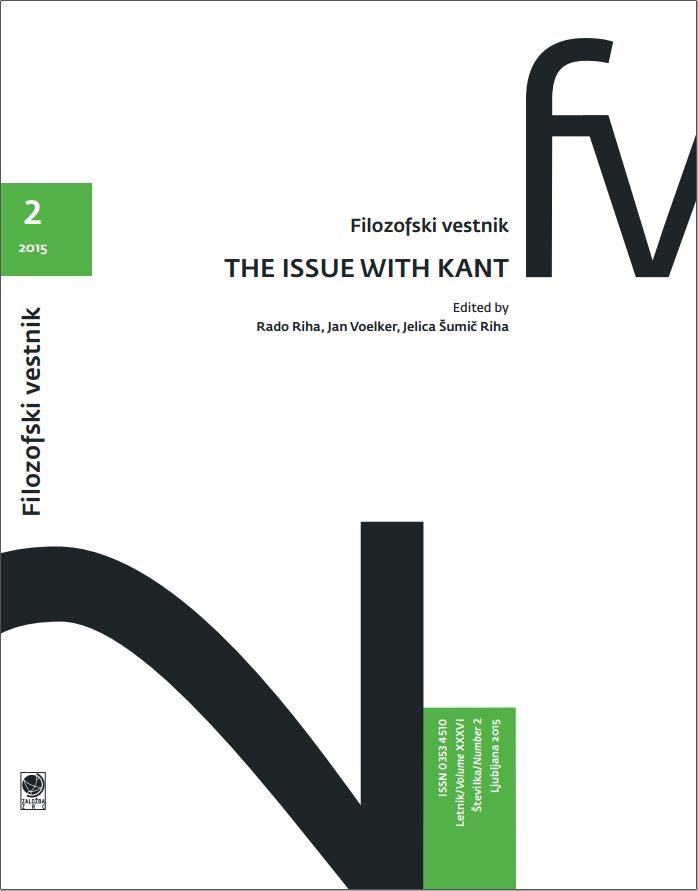Zmožnost spontanega ohranjanja receptivnosti: upodobitvena moč v Kantovi teoriji izkustva
Ključne besede:
Kant, spontanost, receptivnost, upodobitvena moč, samoafekcijaPovzetek
Eden temeljnih problemov za teorijo izkustvene sodbe zadeva razumevanje povezanosti spontanosti in receptivnosti, ki sta nujni za sodbo. Kako je mogoče, da dobi nenormativni in nekonceptualni vidik (se pravi, receptivnost) pri izkustvenih sodbah normativen pomen? V sodobnih razpravah o Kantovi rešitvi te uganke lahko ločimo dve težnji, ki tvorita enako nezadovoljivi alternative. Zdi se, da sta za interpretacijo Kantove misli, po kateri so pogoji spontanosti konstitutivni za način, kako so nam reči dane, na voljo dve poti: bodisi je nenormativni in nekonceptualni element receptivnosti zanemarjen, bodisi je čutno izkustvo interpretirano kot sestavljena struktura, ki vključuje naravne in normativne vidike, ne da bi razumeli nujnosti povezave teh heterogenih vidikov. Pričujoči članek izhaja iz domneve, da je taka podoba posledica »idealističnega« nerazumevanja Kantovega pojmovanja izkustva iz prve Kritike in »materialistične« poante pojmovanja spontane receptivnosti, ki jo slednja implicira. V nasprotju s temi interpretacijimi pričujoči prispevek vztraja, da je treba rekonstruirati povezavo spontanosti in receptivnosti, in sicer tako, da se subjekt razsojanja sam določa kot spontano receptiven, in sicer tako, da ohranja svoje čutne afekcije kot avtoafekcije. Tak vidik spontanosti je mogoče doseči s (transcendentalno) zmožnostjo upodobitvene moči. V pričujočem prispevku bomo poskusili rekonstruirati nekatere ključne poteze Kantovega pojmovanja upodobitvene moči v Dedukcijah A in B iz prve Kritike in nakazati, kako lahko na tej podlagi prispevamo k rešitvi uganke receptivnosti.Prenosi
Podatki o prenosih še niso na voljo.
Prenosi
Objavljeno
2016-03-27
Kako citirati
Setton, D. (2016). Zmožnost spontanega ohranjanja receptivnosti: upodobitvena moč v Kantovi teoriji izkustva. Filozofski Vestnik, 36(2). Pridobljeno od https://ojs.zrc-sazu.si/filozofski-vestnik/article/view/4523
Številka
Rubrike
Articles
Licenca
Avtorji jamčijo, da je delo njihova avtorska stvaritev, da v njem niso kršene avtorske pravice tretjih oseb ali kake druge pravice. V primeru zahtevkov tretjih oseb se avtorji zavezujejo, da bodo varovali interese založnika ter da bodo povrnili morebitno škodo.
Podrobneje v rubriki: Prispevki





